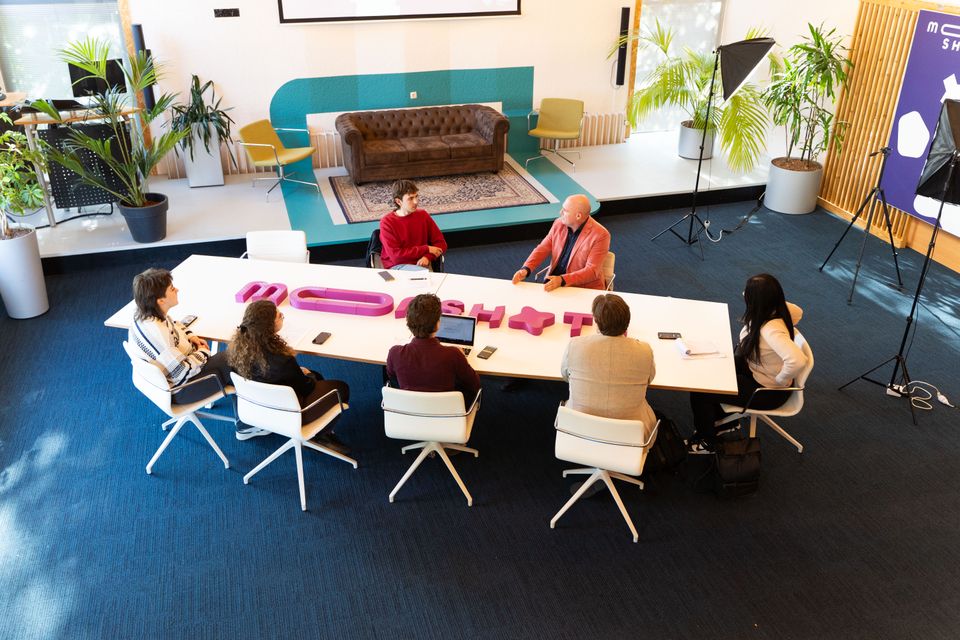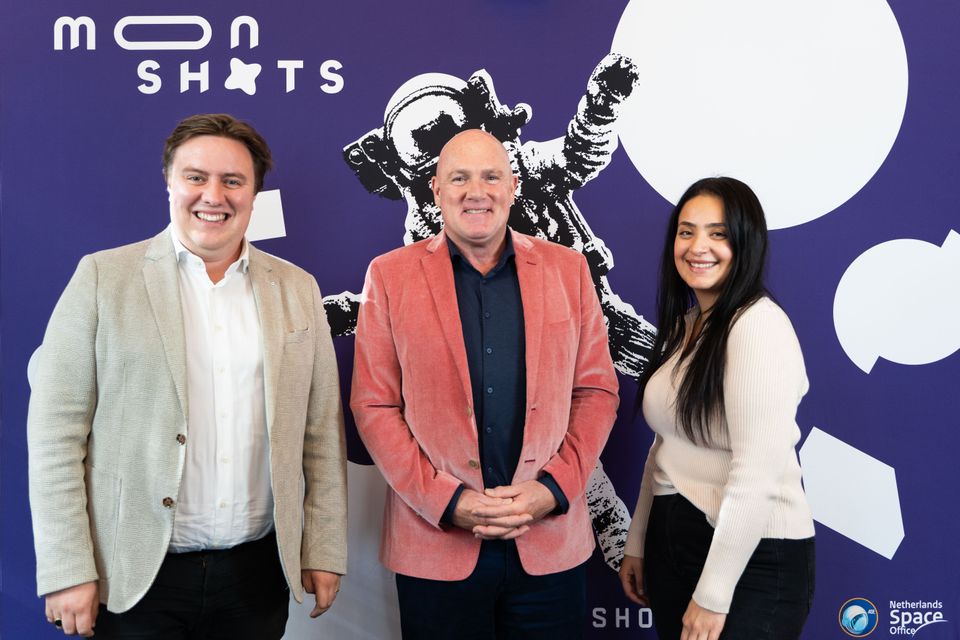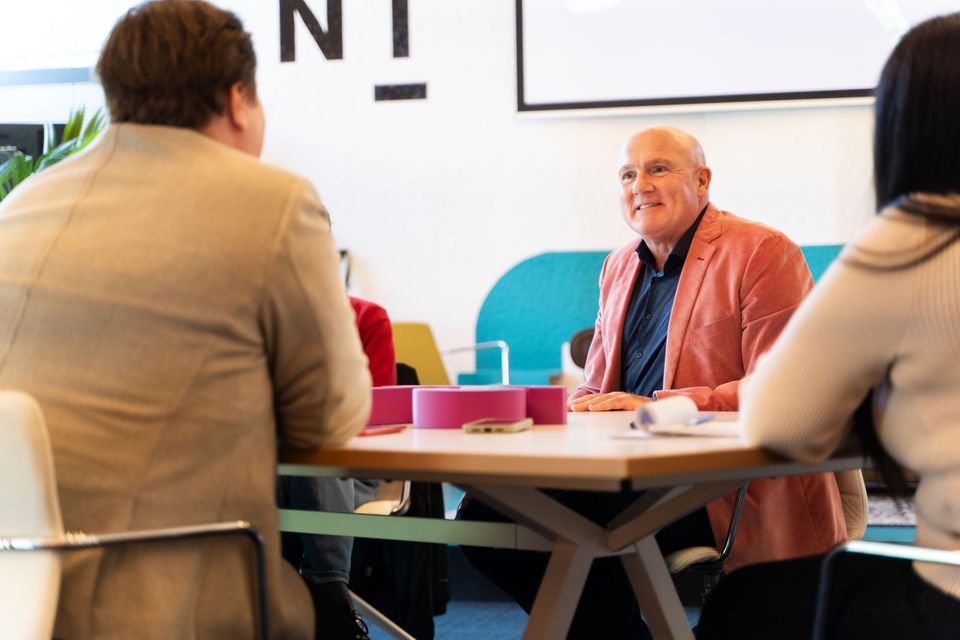André Kuipers speaks in Leiden on the unique scientific programme 'NL MOONSHOTS '24'
Toen president Kennedy van de VS in 1962 aankondigde voor het eind van het decennium op de maan te willen staan, werd hij voor gek verklaard. Toch is het de Verenigde Staten gelukt om dit te bewerkstelligen. Het nieuwe en ambitieuze programma NL MOONSHOTS ’24 daagt nu studenten uit hun eigen crazy ideas in te dienen, om die in samenwerking met ruim honderd internationale astronauten uit te werken. Op 8 oktober kickt Nederlandse astronaut en ruimtevaartonderzoeker André Kuipers het initiatief af. Daniël op den Buijsch van Leiden Convention Bureau sprak met Kuipers over NL MOONSHOTS ’24, over de rol van astronauten in het programma en over hoe belangrijk experimenteren in de ruimte is voor de uiteenlopende toepassingen op aarde.
Calling all student pioneers
For the NL MOONSHOTS '24 program, students from across the education spectrum are invited to submit their crazy ideas, or 'moonshots'. In five themes - the so-called MISSIONS - ranging in bandwidth from humanity to technology, students are challenged to think big and submit literally and figuratively crazy ideas. Above all, all moonshots contain ingredients that - from insight or application - help society take a step forward, with a nod to space technology. 'Ideally, we would like to have a hundred teams of students. You then have a year with your team to further develop your crazy idea. During this period, you will be paired with specialists from science and industry, and attend workshops and presentations. Your team will also be paired up with a real astronaut, i.e. me or one of my 99 colleagues, who will also help you further with his or her expertise, experience, and Overview Effect experience', André Kuipers says about the program.
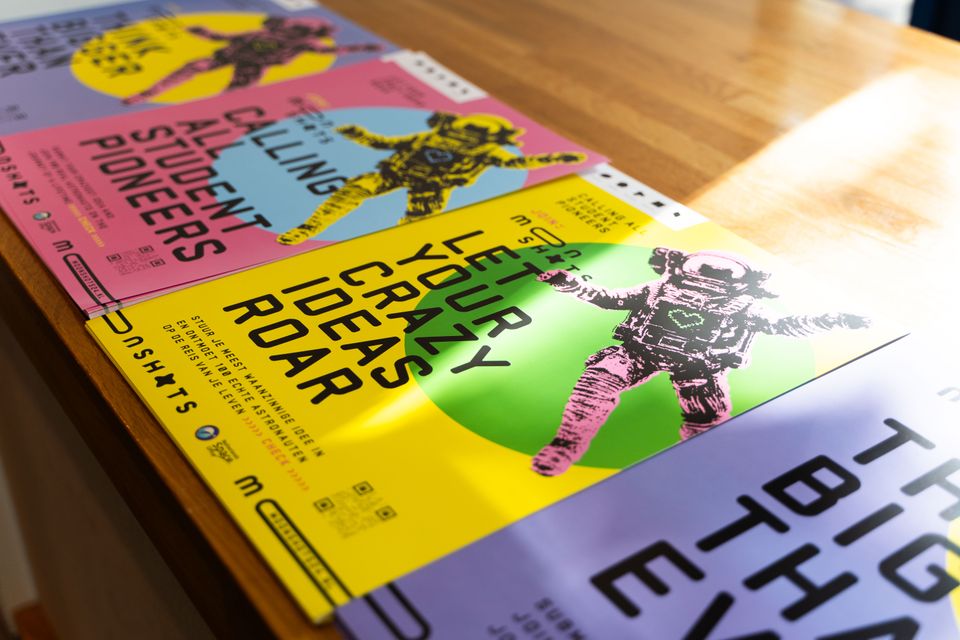
The astronauts participating in the NL MOONSHOTS '24 program will be in the Netherlands for the 'XXXV Planetary Congress' of the Association of Space Explorers (ASE), which will take place in Noordwijk and Amsterdam in 2024. The ASE is a unique association of international space explorers from 38 countries. The members of this association have one thing in common: they have made at least one orbit around the Earth aboard a spacecraft. 'The ASE was founded in 1985, at the end of the Cold War, with the idea of being above all parties. After all, people are better at cooperating than going to war. The ASE therefore promotes international cooperation for this reason. Consequently, the ISS has been proposed a few times as a candidate for the Nobel Peace Prize.'
'If you are hired as an astronaut, you are also implicitly an ambassador for space exploration.'
'Besides representing astronauts who have orbited Earth, and promoting international cooperation, the ASE has another important goal: outreach, or outreach. We do this to show as many young people as possible how much fun science and engineering are, and how beautiful and how fragile our planet is. If you are hired as an astronaut, you are implicitly also an ambassador for space exploration. So the importance of reaching out to the younger generation is in the blood of all astronauts.'
This is why André Kuipers is so enthusiastic about the MOONSHOTS '24 program. 'We have never tackled congress outreach on such a large scale before, that we start a year in advance. A few weeks ago, the last edition of the congress was in Turkey. There, we also set up a big outreach program in cooperation with many local museums. However, the reach of the congress there was limited to that one week. To take it all up a year in advance this year is a wonderful new idea!
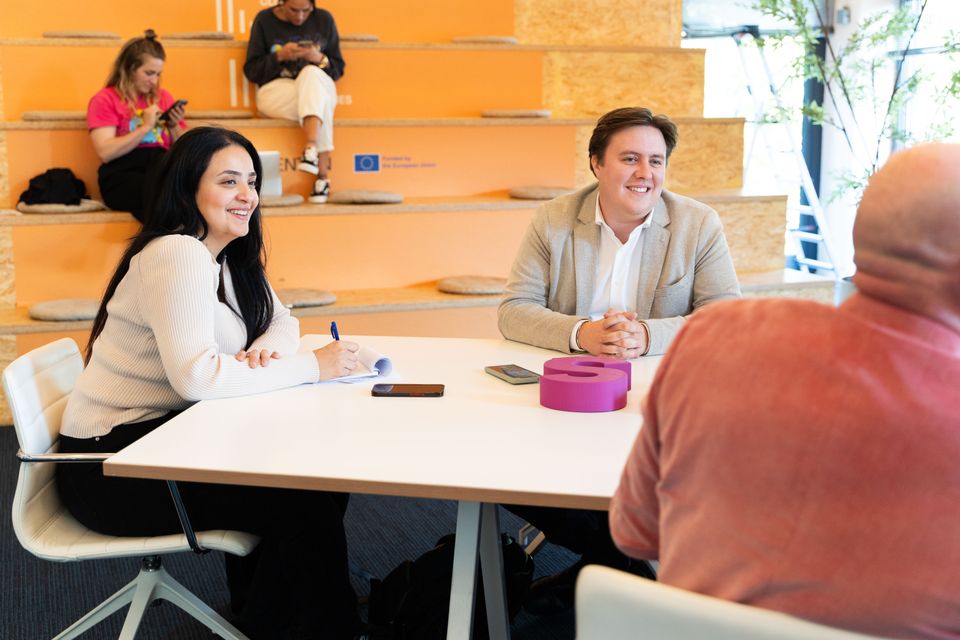
A healthier society through Space Research
André Kuipers has made two flights to space during his career as an astronaut, both aboard the ISS (International Space Station). The ISS offers a unique outcome for a wide range of experiments; things you cannot investigate on Earth you can investigate there because you can eliminate a factor you cannot eliminate on Earth. Kuipers, a doctor by origin, has been involved in several medical experiments on the ISS. 'There are two main problems for people in space: radiation and osteoporosis. All astronauts lose bone quickly because there is no more force on their bodies. This causes rapid bone decalcification, especially in the load-bearing bones such as heels, your lower back, and hips. There were three experiments during my flight to combat osteoporosis. One astronaut ate high salt for a week, and then low salt again for a week. Another started exercising extra. Yet another astronaut was given certain anti-osteoporosis medication based on bisphosphonates. What we found out is that the medication combined with extra strength training helps best. We can translate this knowledge into medical applications of great benefit to society on Earth.'
